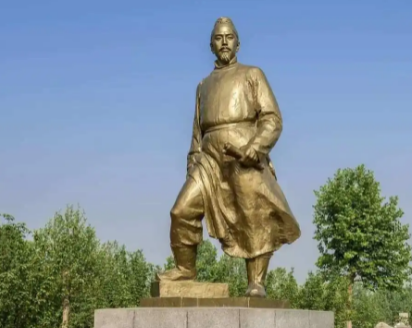The Battle of Jingnan, also known as the Jingkang Rebellion, is a famous power struggle within the royal family in Chinese history. This article will analyze the strength comparison and detailed process of the Battle of Jingnan, revealing the historical truth behind this battle.

I. Strength Comparison
1. Zhu Di vs. Zhu Yunmin
Zhu Di, later known as the Ming Chengzu, was the fourth son of Zhu Yuanzhang and was known for his intelligence and military achievements since childhood. Zhu Yunmin, also known as the Emperor Jianwen, was the grandson of Zhu Yuanzhang and ascended the throne at the age of 21, lacking political experience and military talent. In terms of strength, Zhu Di possessed rich military experience and strong military strength, while Zhu Yunmin appeared immature and weak.
2. Military Strength Comparison
Before the Battle of Jingnan, Zhu Di had accumulated rich military experience, and his army was well-trained and had strong combat capabilities. Although Zhu Yunmin had a large army during his reign, its combat effectiveness was not strong due to a lack of practical combat experience. In addition, during his reign, Zhu Yunmin implemented a series of reforms to the army, further reducing its combat effectiveness.
3. Foreign Aid Comparison
During the Battle of Jingnan, Zhu Di received support from some vassal states, such as the Yan King of Beiping and the Ning King of Nanjing. This support provided Zhu Di with powerful foreign aid. On the other hand, Zhu Yunmin did not receive any support from the vassal states and even faced opposition from some of them.
II. Detailed Process
1. Outbreak of War
The Battle of Jingnan broke out in the first year of the Jianwen period of the Ming Dynasty (1399). Zhu Di, under the pretext of "clearing the emperor's court," launched a rebellion against Zhu Yunmin's rule. In the early stages of the war, Zhu Di's army achieved a series of victories on the battlefield, gradually weakening Zhu Yunmin's military strength.
2. Turning Point of the War
However, as the war progressed, Zhu Yunmin gradually adjusted his strategy, strengthening the training and equipment of his army. In the Nanjing Defense Battle, Zhu Yunmin's army successfully repelled Zhu Di's attack, inflicting heavy losses on his army. Afterward, both sides were embroiled in a prolonged stalemate.
3. Outcome of the War
After three years of fighting, the Battle of Jingnan ended with Zhu Di's victory. In the fourth year of the Jianwen period (1402), Zhu Di captured Nanjing, and the Emperor Jianwen was deposed. Zhu Di ascended the throne as the Ming Chengzu, marking the end of the Battle of Jingnan.
III. Conclusion
The Battle of Jingnan was a typical power struggle within the royal family. From the perspective of strength comparison, Zhu Di clearly held the advantage. However, the course of the war was full of twists and turns. This battle not only changed the historical process of the Ming Dynasty but also left many issues worthy of contemplation for future generations.
Disclaimer: The above content is sourced from the internet and the copyright belongs to the original author. If there is any infringement of your original copyright, please inform us and we will delete the relevant content as soon as possible.






























